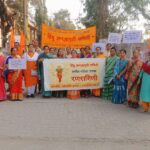May, 2024 – Rest the Case, a disruptive legal-tech platform, has announced an upcoming virtual debate on the hot topic: “The Uniform Civil Code Debate: Uniting or Dividing India?” The event scheduled on 25th May 2024 at 12 PM virtually, aims to provide a comprehensive analysis of the implications, challenges, and feasibility of implementing a Uniform Civil Code (UCC) in India.
The debate will feature prominent legal experts including Adv. Paromita Majumdar, an Advocate on Record at the Supreme Court of India with over 12 years of experience specializing in Litigation and Dispute Resolution; Adv. Manan Mehra, a distinguished Delhi-based lawyer focusing on commercial and civil law, known for his expertise in consumer disputes and complex matrimonial and property-related cases; Adv. Yogita Joshi, renowned for her expertise in civil, criminal, and family law, including white-collar crimes and constitutional matters; and Adv. Pawan Prakash Pathak, Managing Partner at Vidhik Nyay & Partners, specializes in constitutional practice and handling significant commercial and criminal disputes.
Shreya Sharma, Founder and CEO of Rest the Case, emphasized the importance of this discussion: “The debate on the Uniform Civil Code is pivotal for India’s future well-being. It is crucial to address the legal, social, and political dimensions of this issue thoughtfully and inclusively. Our panel brings together some of the finest legal minds to dissect these complexities and engage in a meaningful dialogue.”
The debate will delve into several key points, including the necessity of a UCC for achieving legal uniformity and ensuring equality among citizens, irrespective of their religious or cultural backgrounds. Proponents believe it would promote social cohesion and gender equality by eliminating discriminatory practices present in some personal laws.
The discussion will also address the political motivations behind the push for a UCC, examining the historical context, particularly the BJP’s longstanding advocacy for the UCC and its implications for religious minorities, as well as the influence of women’s rights movements on this discourse. Critics highlight the complexity and sensitivity inherent in implementing a UCC in a diverse country like India, raising concerns about the potential erosion of cultural and religious identities, and the practical challenges of reconciling diverse legal traditions and accommodating tribal communities’ rights and preferences. Those interested can join virtually through their social media channels in this insightful discussion to explore whether a Uniform Civil Code will unite or divide India. Make sure to stay tuned to their platforms to get the latest updates about the event.









